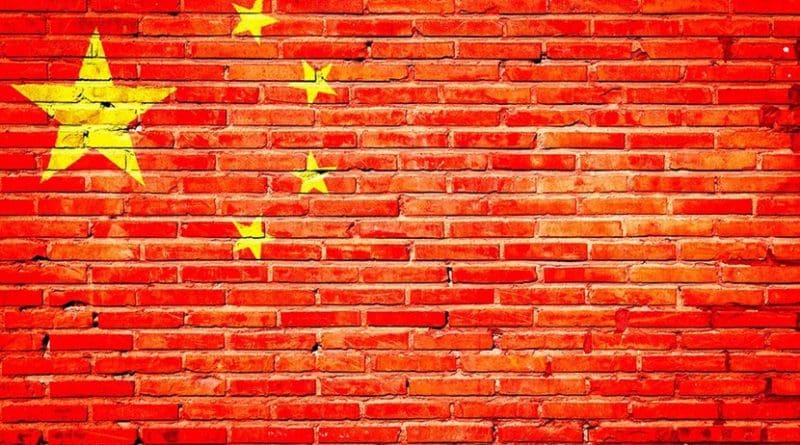China Charges Former Security Czar With Graft, Revealing State Secrets
By RFA
State prosecutors in the northern Chinese city of Tianjin have indicted former security czar Zhou Yongkang on charges of “bribery, abuse of power and intentional disclosure of state secrets,” official media reported on Friday.
The indictment was issued by the state prosecutor linked to the Tianjin No. 1 Intermediate People’s Court, the Supreme People’s Procuratorate, China’s top state prosecution agency, said in a statement.
Former state security chief Zhou, 73, “took advantage of his posts to offer interests to others and illegally accepted a huge amount of money and property,” the official news agency Xinhua quoted the indictment as saying.
Such abuse of power resulted in “grave losses of public property” and harmed the interests of the country and the people, it said.
Zhou’s actions were “particularly bad,” and the social consequences were bad,” Xinhua reported.
However, there was no reference to earlier accusations by China’s Supreme People’s Court that Zhou was involved in “unofficial political activities” with jailed former Chongqing party boss Bo Xilai, which observers saw as a reference to unconfirmed rumors that the pair had tried to stage a coup in March 2012.
Zhou, who served as public security minister from 2002 before being promoted to the all-powerful Politburo standing committee from 2007-2012, was formally arrested and expelled from the party last year.
Zhou’s control over the domestic security regime, multiple business interests in state-run mining and petroleum giants, and political power base in southwestern Sichuan province had given him huge power before he stepped down from the Politburo standing committee in November 2012.
The post of domestic security chief has since been downgraded to report to the committee.
The inclusion of “intentional disclosure of state secrets” on the charge sheet could indicate that Zhou’s trial, which now looks set to be held in Tianjin, will be at least partially behind closed doors, analysts said.
“Once they say that state secrets are involved, they can decide to hold the trial behind closed doors,” Beijing-based political commentator Zha Jianguo said.
“The legal side of [the statement] isn’t very detailed, however, and it will be for the court to decide what does and doesn’t constitute a state secret,” Zha said.
‘Bigger than the Bo Xilai case’
Yang Jisheng, deputy editor of political magazine Yanhuang Chunqiu, agreed.
“The way things are at the moment, this case is going to be even bigger than the Bo Xilai case,” Yang said.
“It’s hard to say how it will turn out, but right now I don’t think there’s much hope that the trial will be very open at all,” he said.
According to Jin Zhong, editor-in-chief of Hong Kong’s Kaifang magazine, the lack of reference to political activities suggests that the administration of President Xi Jinping is trying to distance itself from any political motivation in Zhou’s case.
“They will get more public sympathy, understanding and support that way,” Jin said. “There have been some painful historical lessons learned from the political approach, from the purges of all those anti-party cabals and counterrevolutionaries of the Mao era.”
“Ultimately, the whole thing came tumbling down,” he said, adding: “Political movements are inherently unstable.”
Jin said Xi and his allies are hoping to avoid reminding people of the political trials of recent Chinese history.
“Political attacks … ultimately don’t lead to long-term stability and the concentration of power in one place,” he said.
“Mao Zedong brought down countless high-ranking officials within the party, but the moment he died, all his ideas and policies were replaced,” Jin said.
Tigers and flies
And Xi’s anti-corruption campaign against high-ranking “tigers” and low-ranking “flies,” launched when he took power in November 2012, has already had the effect of consolidating the president’s hold on power, according to Zha Jianguo.
“I think we can say that Xi Jinping has managed to get the whole of China under his control in a stable manner,” Zha said.
“Legally speaking, they already have a lot of evidence [against Zhou], and they don’t have to worry about any political threats,” he said.
“They’ve pretty much destroyed Zhou’s ability to fight back.”
Guangxi-based rights activist Yang Zaixin said the reference to the “particularly bad” effects of Zhou’s alleged crimes suggests he may face a suspended death sentence, or even a full death penalty.
Acquittals are unusual in the Chinese judicial system, particularly in high profile political cases.
“A community leader in Guangxi was executed for corruption worth some 70 million yuan,” Yang said. “How much did Zhou make from corruption? At the very least, he’ll get a suspended death sentence.”
Yang said there would likely be an open portion of the trial for the economic aspects of Zhou’s alleged offenses, and a closed portion to deal with the state secrets charge.
He said the location of the trial further suggests a bid by the government to manage proceedings carefully.
“The fact that it’s being held in neutral territory means that they’ll be able to prevent any interference from powerful or well-connected people,” Yang said.
Former Chongqing party secretary Bo Xilai was jailed for life for corruption and abuse of power in September 2013, a month after his wife Gu Kailai was handed a suspended death sentence for the murder of a British businessman in the biggest political scandal to rock the party in decades.
Bo’s ouster from office on March 15, 2012, came soon after an embarrassing Feb. 6 visit to the U.S. Consulate in Chengdu by his former police chief and right-hand man Wang Lijun.
Bo’s sudden departure also sparked online rumors of an alleged coup plot between him and Zhou, prompting the country’s Internet censors to shut down comments on many social media sites.
Reported by Xin Lin for RFA’s Mandarin Service and by Wen Yuqing for the Cantonese Service. Translated and written in English by Luisetta Mudie.

